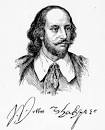Yolanda
Pena
Linguistics
Dr.
Walts
16
March 2015
Biography of the Word “Hallelujah”
I decided to do my biography of a
word project on the Hebrew word “hallelujah”.
As a Christian we often use the word not just in church but in everyday
life as a means to praise God for something good that has happened to us. I also have noticed that this word although
is mainly used by people of the faith of Judaism and Christianity, it is also
commonly used by many others from different religions as well as those without
any religious background.
In researching my word I noticed that in
the majority of my sources the meaning and definition of the word did not vary,
much. For example, according to the
Oxford English Dictionary the word “hallelujah” comes from: “Etymology: < Hebrew hallĕlū-yāh
‘praise (ye) Jah (= Jehovah)’; the verb is the imperative plural of hallēl.” In searching the word in the Webster’s dictionary
the meaning was also very similar. According
to the Webster’s dictionary the etymology is “Hebrew hallĕlūyāh
praise (ye) the Lord, Date: 14th
century, used to express praise, joy, or thanks. Main Entry: hallelujah,
Function:
noun, Date: 13th century,
: a shout or song
of praise or thanksgiving.” The word is
derived from another Hebrew word “hallel” and when I searched the word “hellel”
in the The Oxford Dictionary of the Christian Church, “Hallel
(Heb. “praise”). A name given by the
Jews to Pss. 113-18, and less frequently to other groups of Pss. Between 104 and 150. Pss. 113-18 were also sometimes called the
‘Egyptian Hallel’, from the tradition that they were sung during the killing of
the *Passover lambs. They were recited
at all the principal Jewish festivals, and may have been the hymn sung by
Christ and the Apostles after the *Last Supper (Mt. 26.30). The title, the ‘Great Hallel”, was used esp.
of Ps. 136.” Therefore the word “hallel”
dates back to the Bible’s Old Testament Psalms which date back to the reign of King
David the King of Israel. Many of the
Psalms have been credited to King David who lived c.1040- c. 970 BCE. There is also reference that the “hallel”
dates back to the time of Moses from the first five books of the Bible, dating
back to the first Passover when the children of Israel were liberated from
slavery out of Egypt.
The word “hallelujah” also has many
variations of how it is written and/or pronounced. Some of the spellings are: halleluiah, hallelujah, alleluia, halleluyah,
and hallelujah. These alternative forms
of the word “hallelujah” have to do mainly with how different people pronounce
the word. They write the word according
to the pronunciation. The only word which
is the Greek form of the Hebrew work “hallelujah” is the word “alleluia”. According to the Compact Bible Dictionary “alleluia [al
e LOO yuh] (praise the Lord). A Greek
form of the Hebrew word Hallelujah
used to express joy, praise, and thanksgiving.
The words “Praise the Lord,” found often in the Psalms, is a translation
of the Hebrew Hallelujah.” Therefore the Hebrew word “hallelujah” is
found twenty-four times in the book of Psalms 111-117 and also 145-150 in the
Hebrew Bible. These Psalms either start
or end the Psalm with the word “hallelujah”.
The Greek word “alleluia” is found four times in the Book of Revelation
in the Greek translation of the Bible.
In
modern English we use the word “hallelujah” as a way to express joy and
excitement when something good happens to us.
For example, if someone has been looking for a job for a long time and
finally gets their dream job, it is common to respond with “hallelujah!” This for many people of faith can be a way to
express thanksgiving to God for the new job, but a non-religious person can
also respond with “hallelujah” as a way to express joy and happiness for the
dream job they have been hoping for, and not necessarily as a thanksgiving to
God but just as a common expression. The
word has also been used in many songs throughout the centuries. The most common oratorio which has been
performed by many orchestras and choirs is George Frideric Handel’s “Messiah”
commonly referred to as “Handel – Messiah” and/or “Hallelujah Chorus”. Handel wrote this oratorio in 1741. It is performed every year on Christmas by
many church choirs since it is considered one of the best-known choral works. My husband and I are members of our church
choir and our choir and orchestra performs this piece every year for our
Christmas Concert as an expression of praise and adoration to God.
Therefore,
the word “hallelujah” is an expression of thanksgiving and praise to God and
although it is sometimes used as a way to express joy and thanksgiving for
something expected, it is usually used as a form of adoration to God. Even in slang and swearing dictionaries the
word appears as an expression of praise to God. It is no wonder the word “hallelujah” is a
word that is derived from the Bible especially the Book of Psalms which is an
expression of praise and thanksgiving to Yahweh/Jehovah/God/Lord, the different
names given to the God of the Bible.
Bibliography
Cross, F. L., and Elizabeth A. Livingstone. The Oxford
Dictionary of the Christian Church.
London:
Oxford UP, 1974. Print.
Home: Oxford English Dictionary. N.p., n.d. Web. 01 Mar. 2015.
https://books.google.com
https:/en.wikipedia.org/wiki/Hallelujah
http://www.etymoline.com/index.php?term=hallelujah
The Encyclopaedia Britannica. A Dictionary of Arts,
Sciences, Literature and General
Information.
11th Edition.. Eleventh ed. Vol. 12.
Cambridge: UP, 1910. Print.
Youngblood, Ronald F., F. F. Bruce, and R. K. Harrison. Compact
Bible Dictionary. Nashville,
TN: Nelson Reference & Electronic, 2004.
Print.
"Webster's
Third New International Dictionary." TheFreeDictionary.com. N.p.,
n.d. Web. 01
Mar. 2015.
.png)
.png)